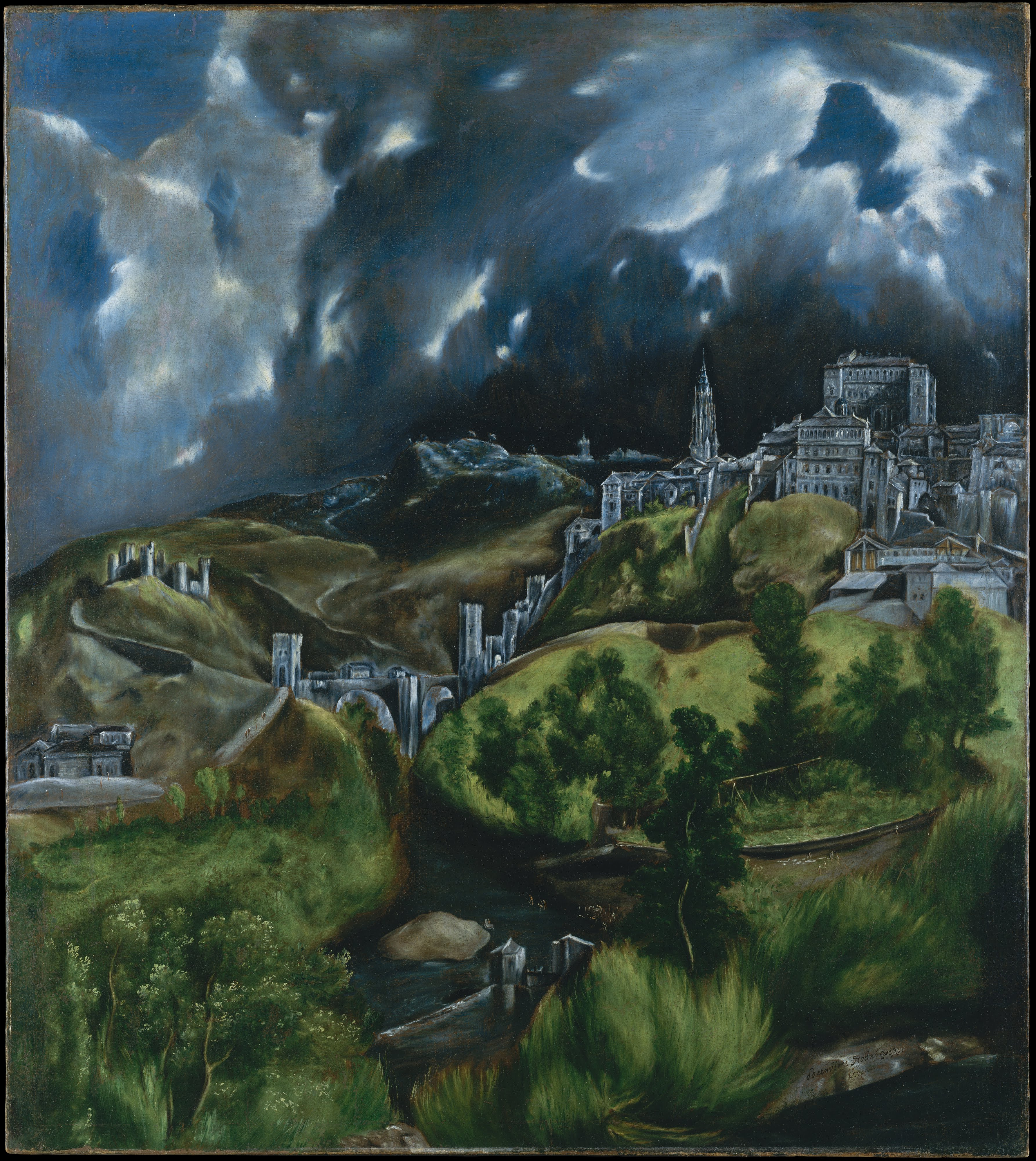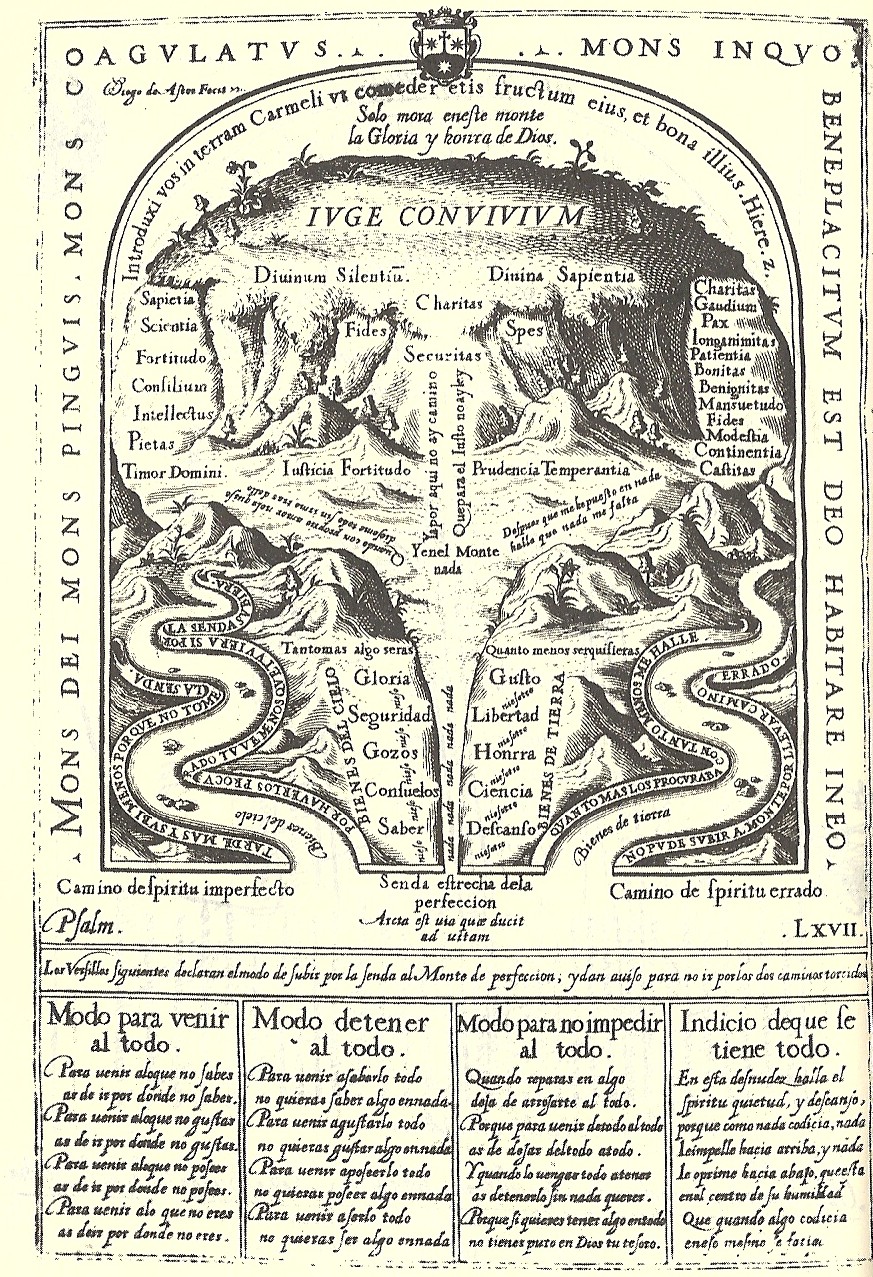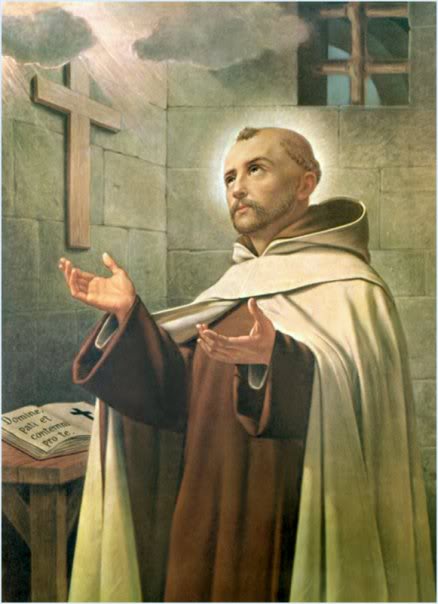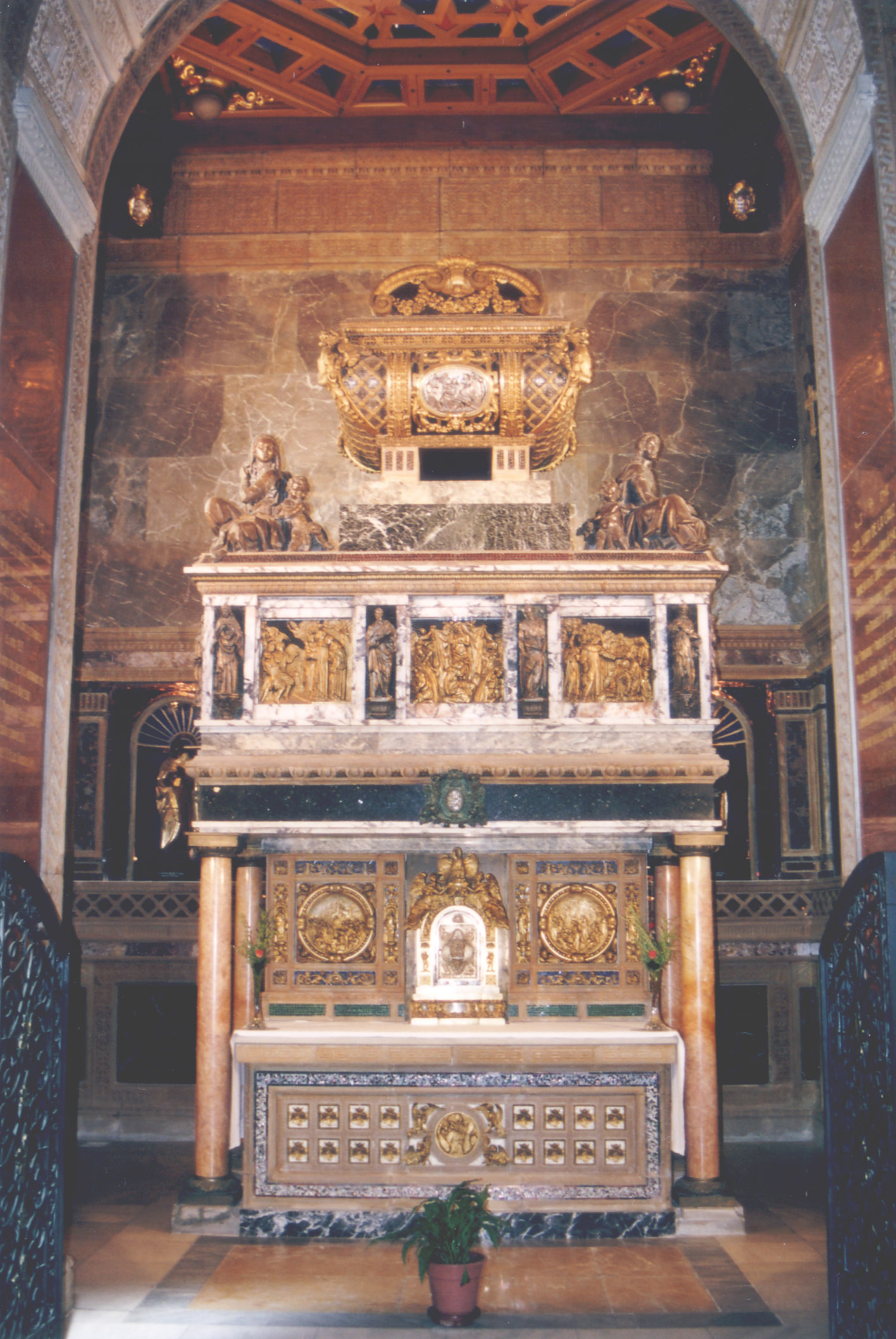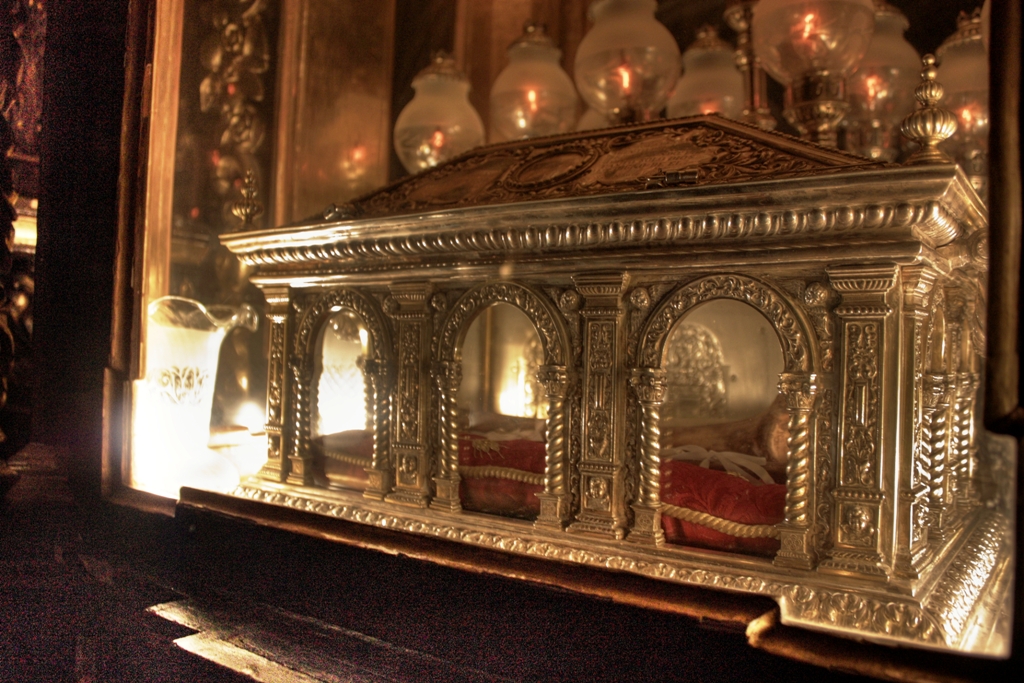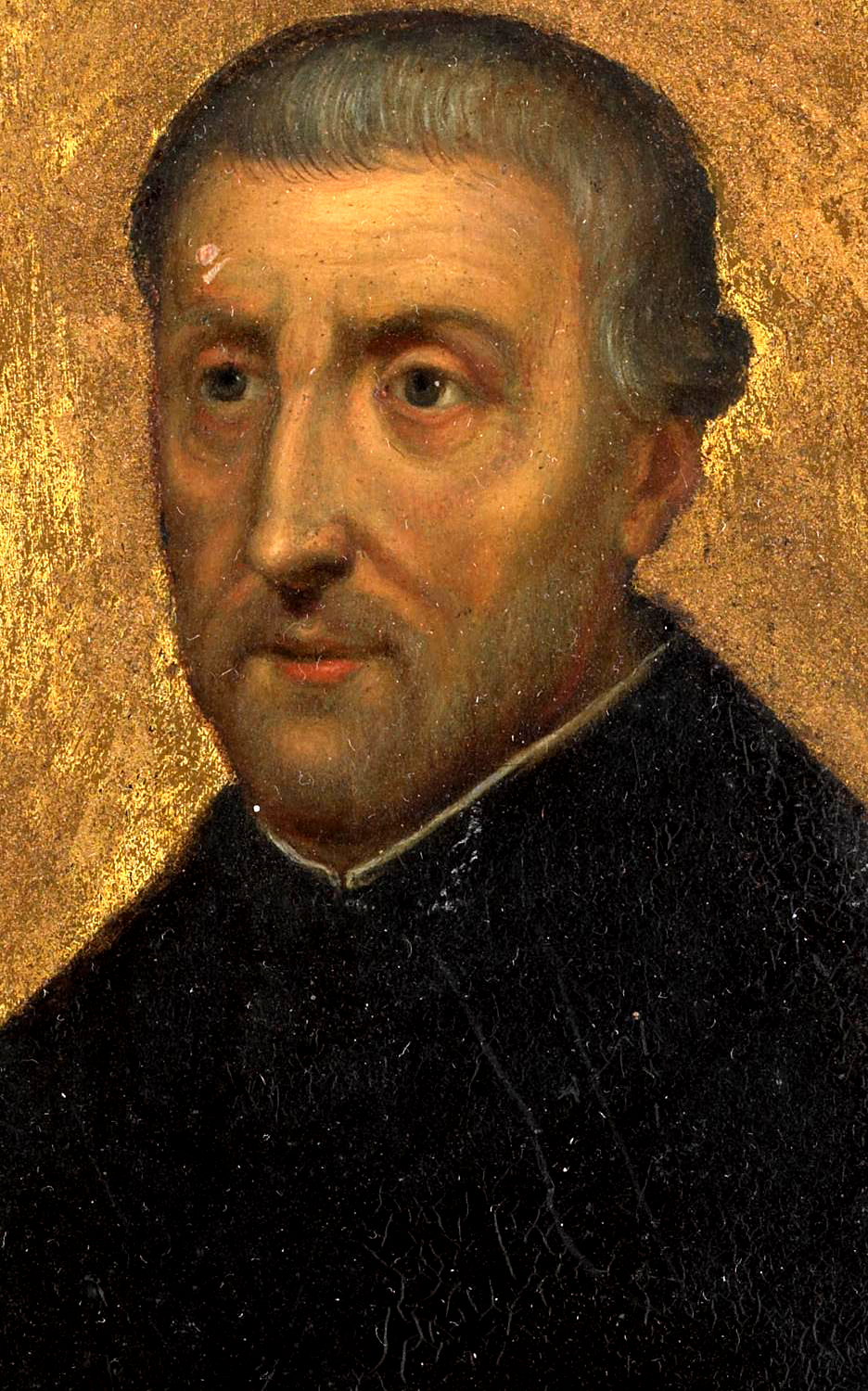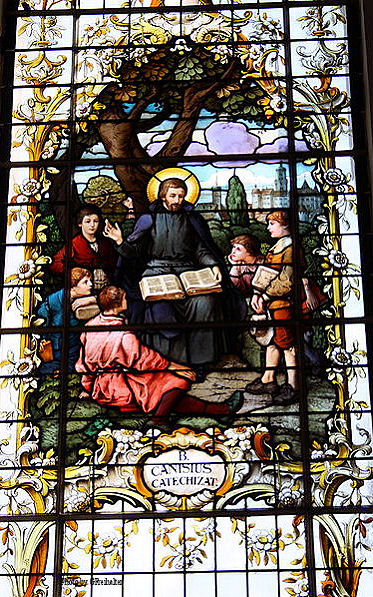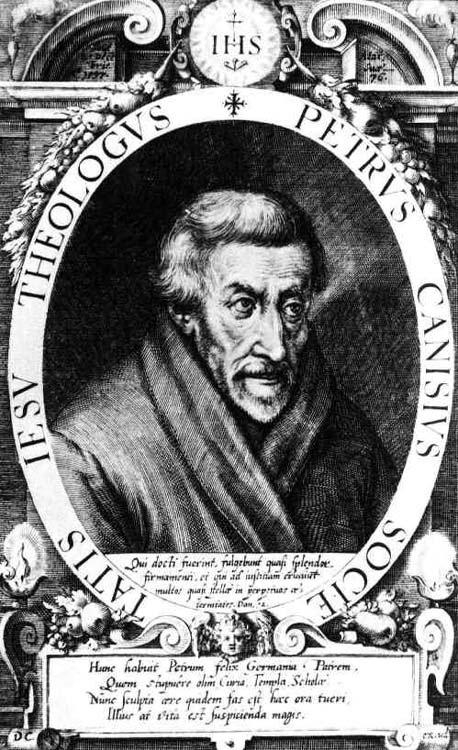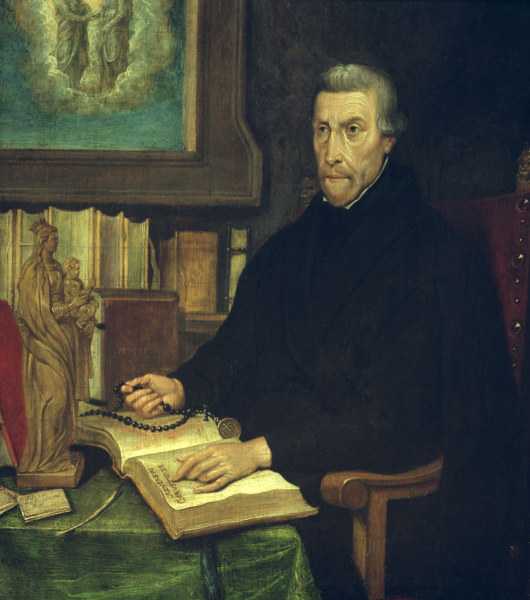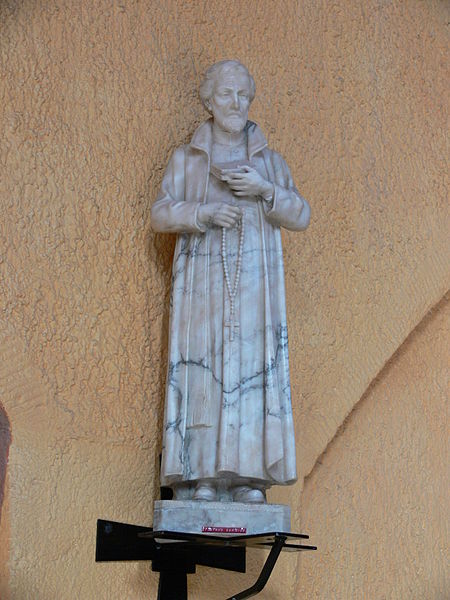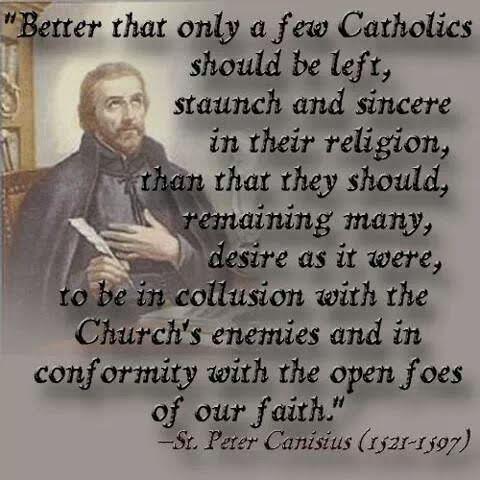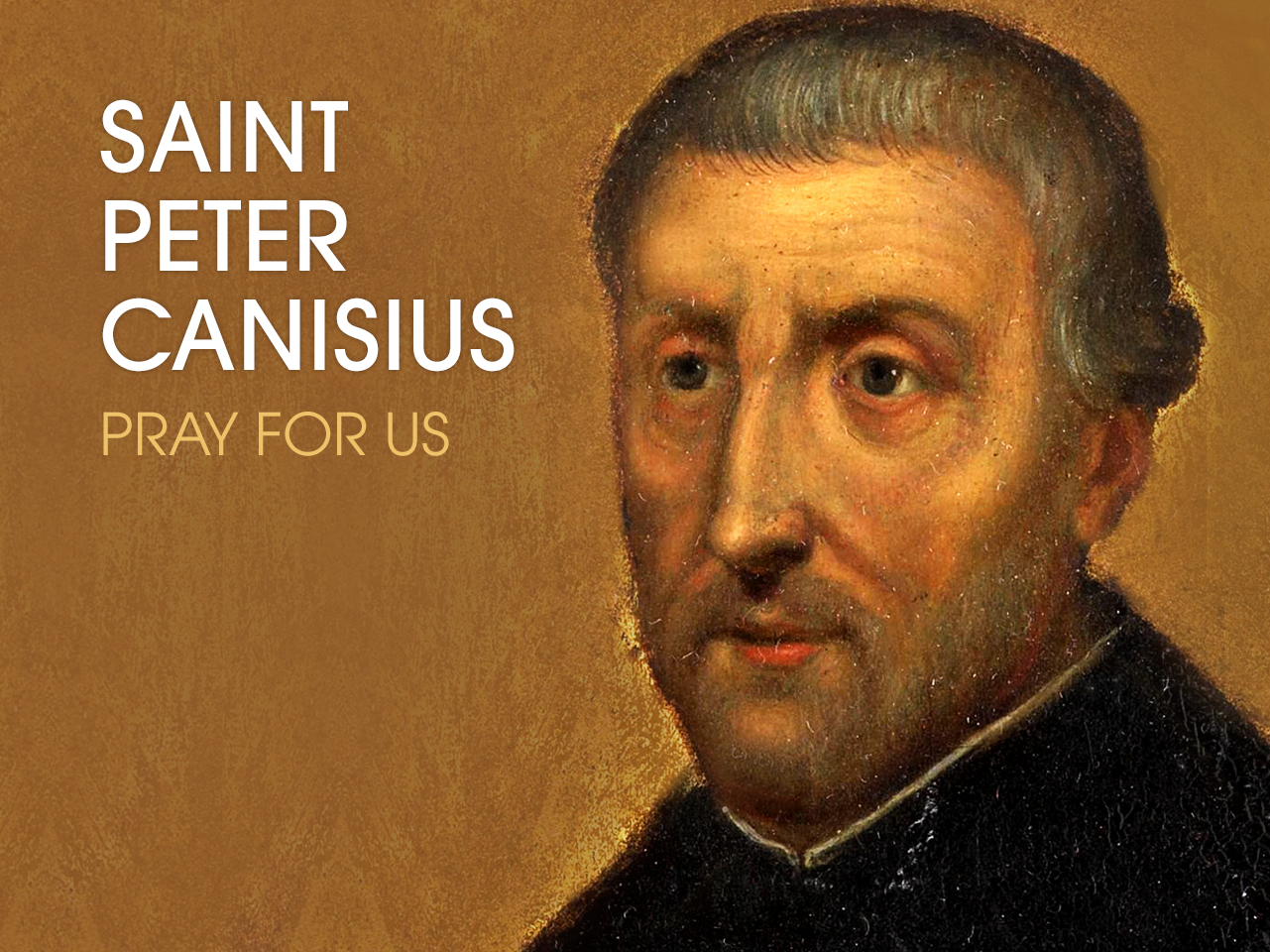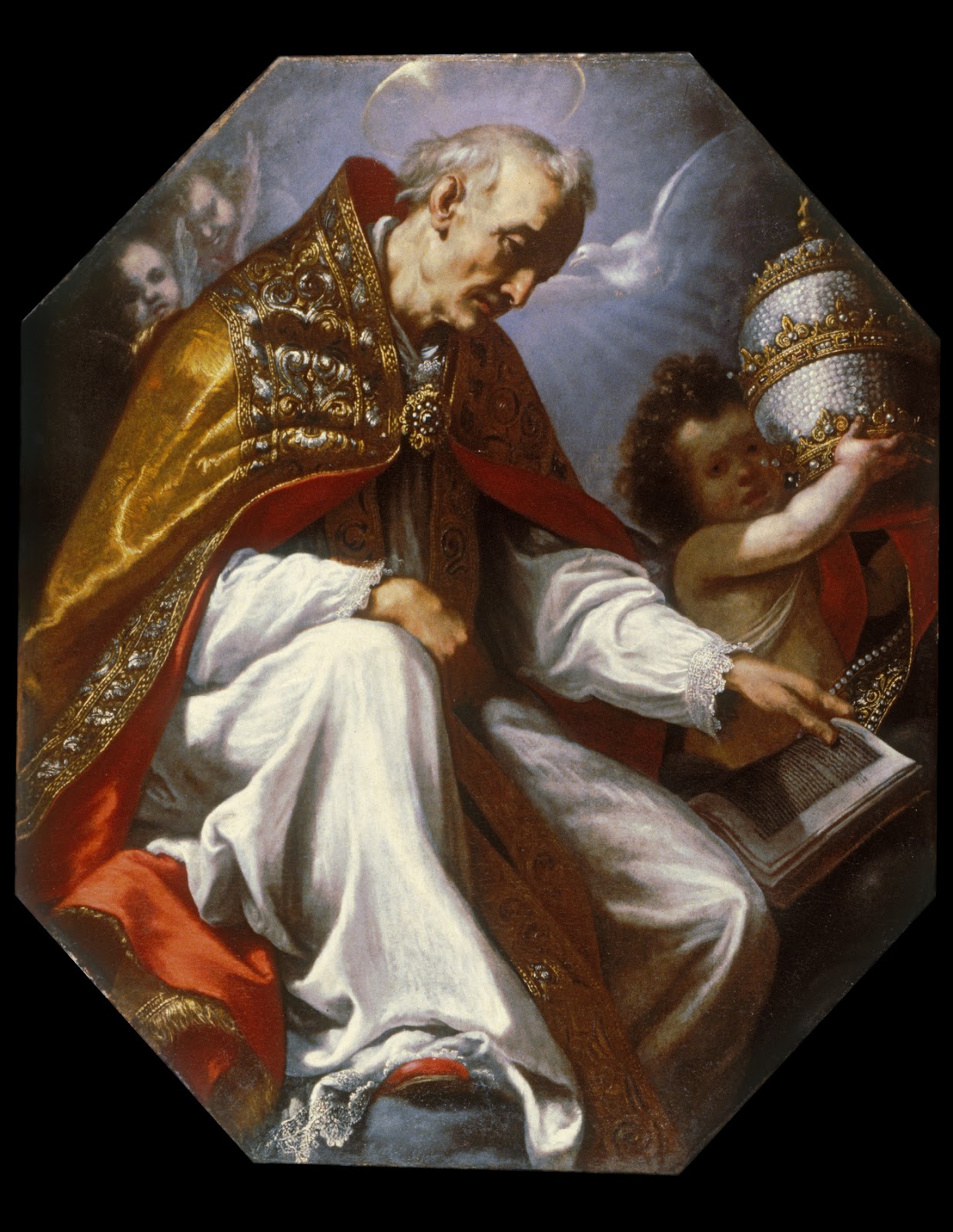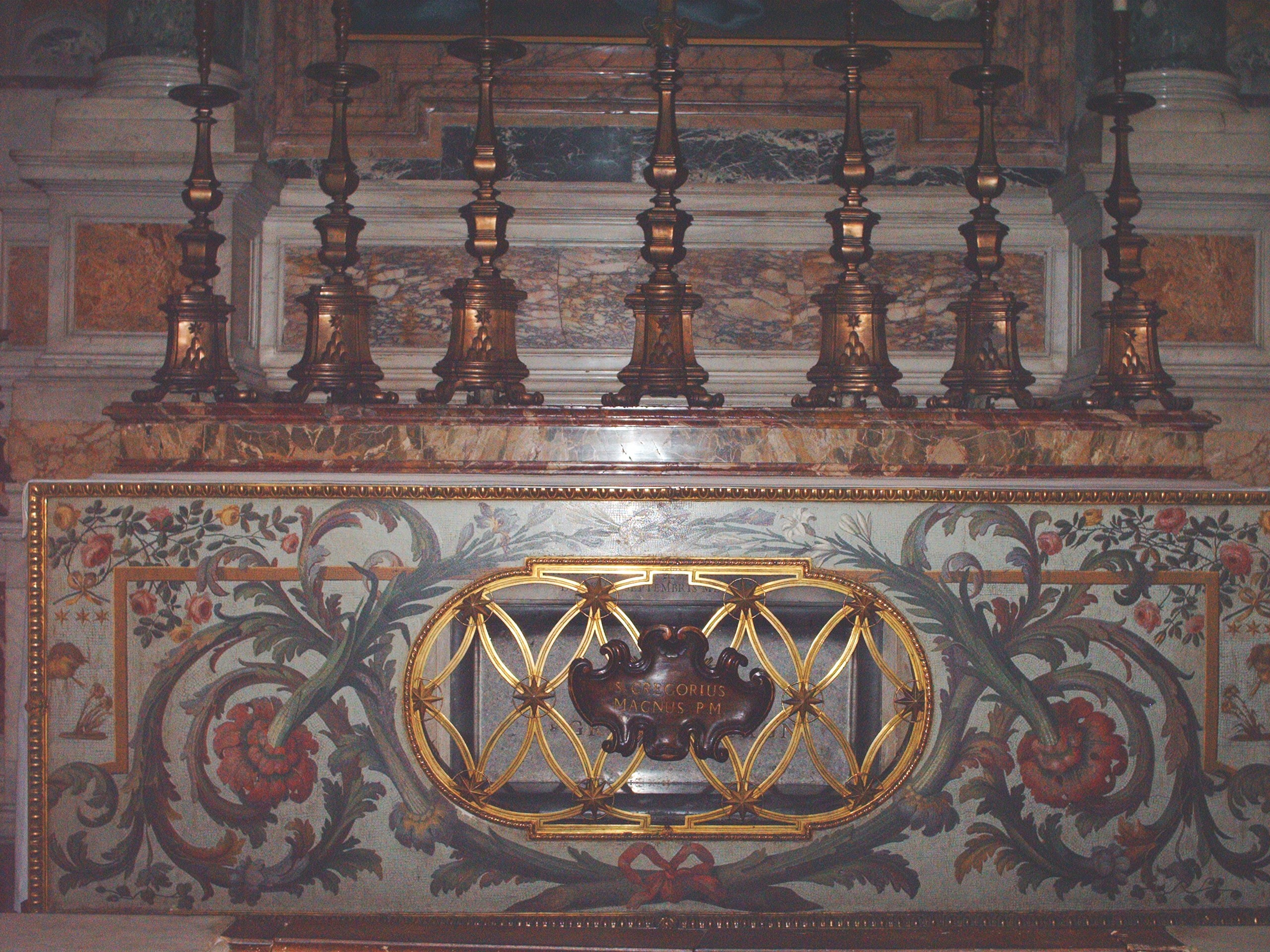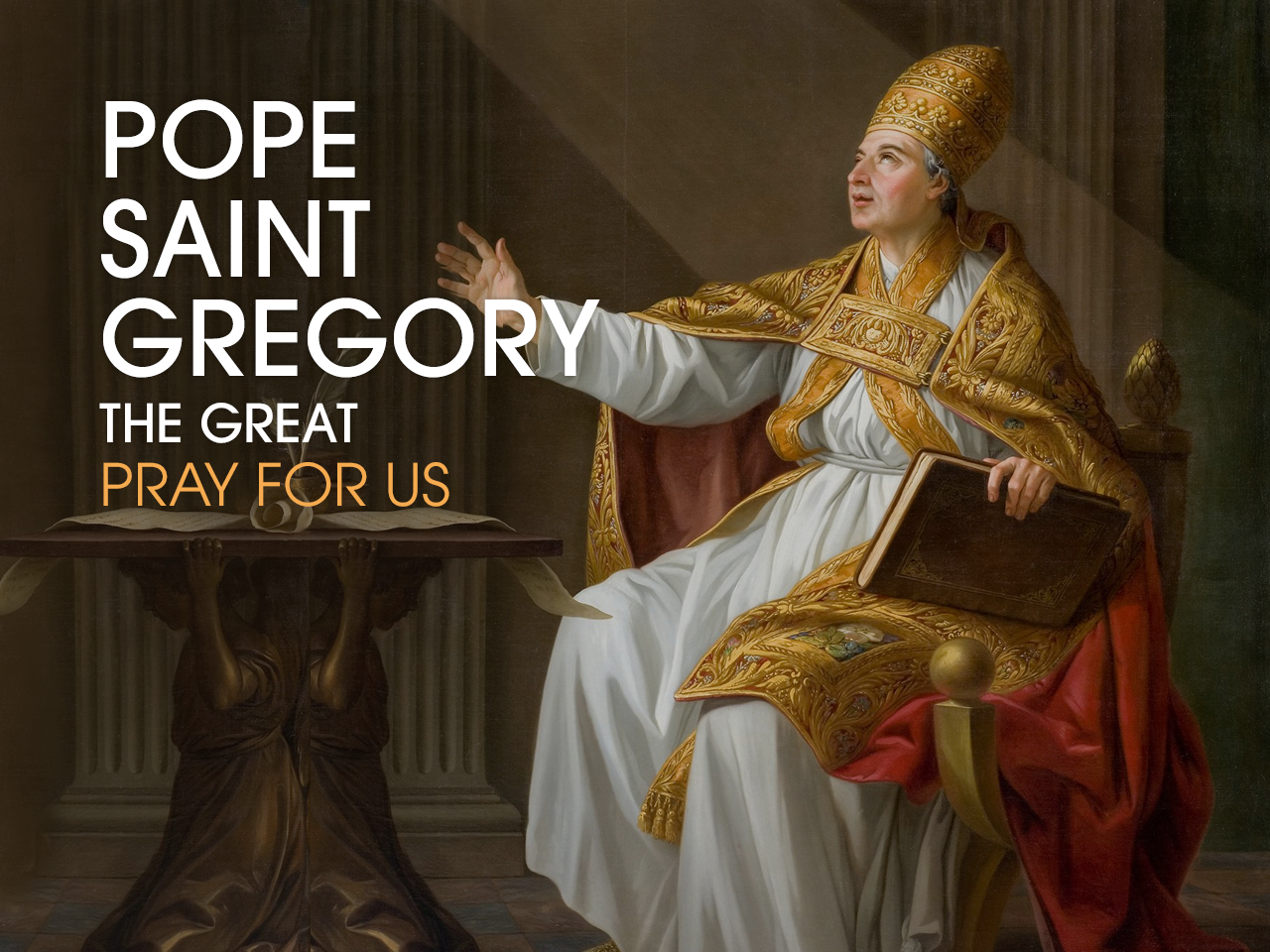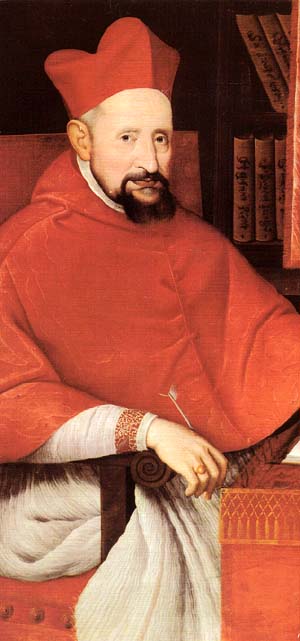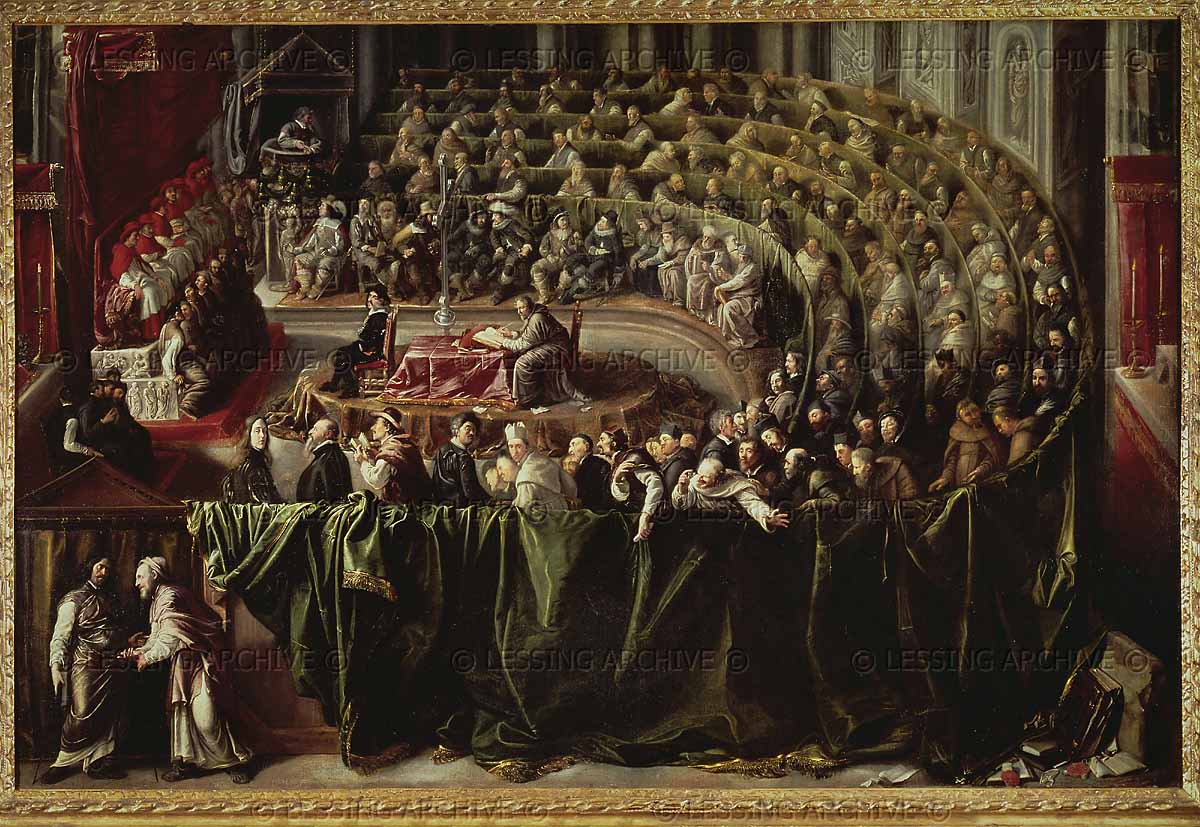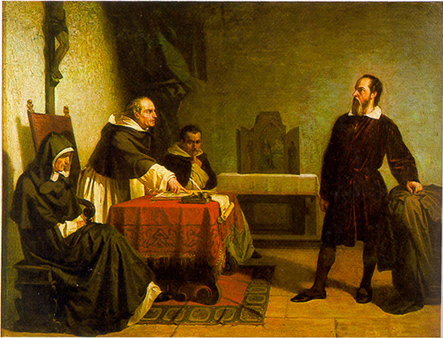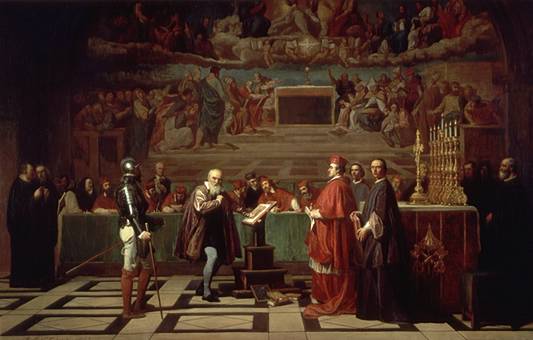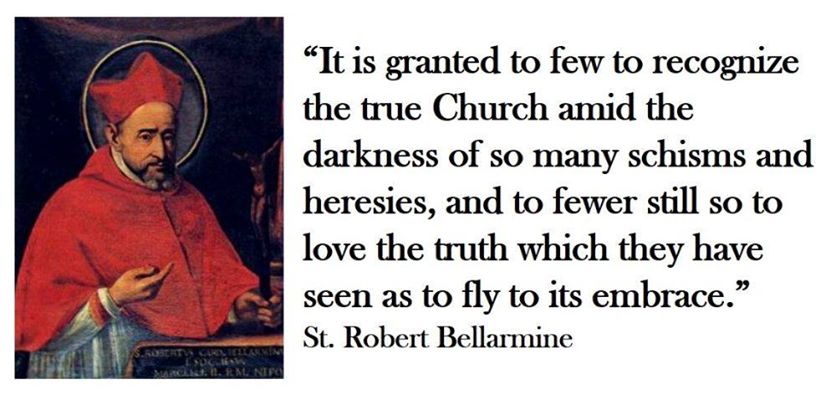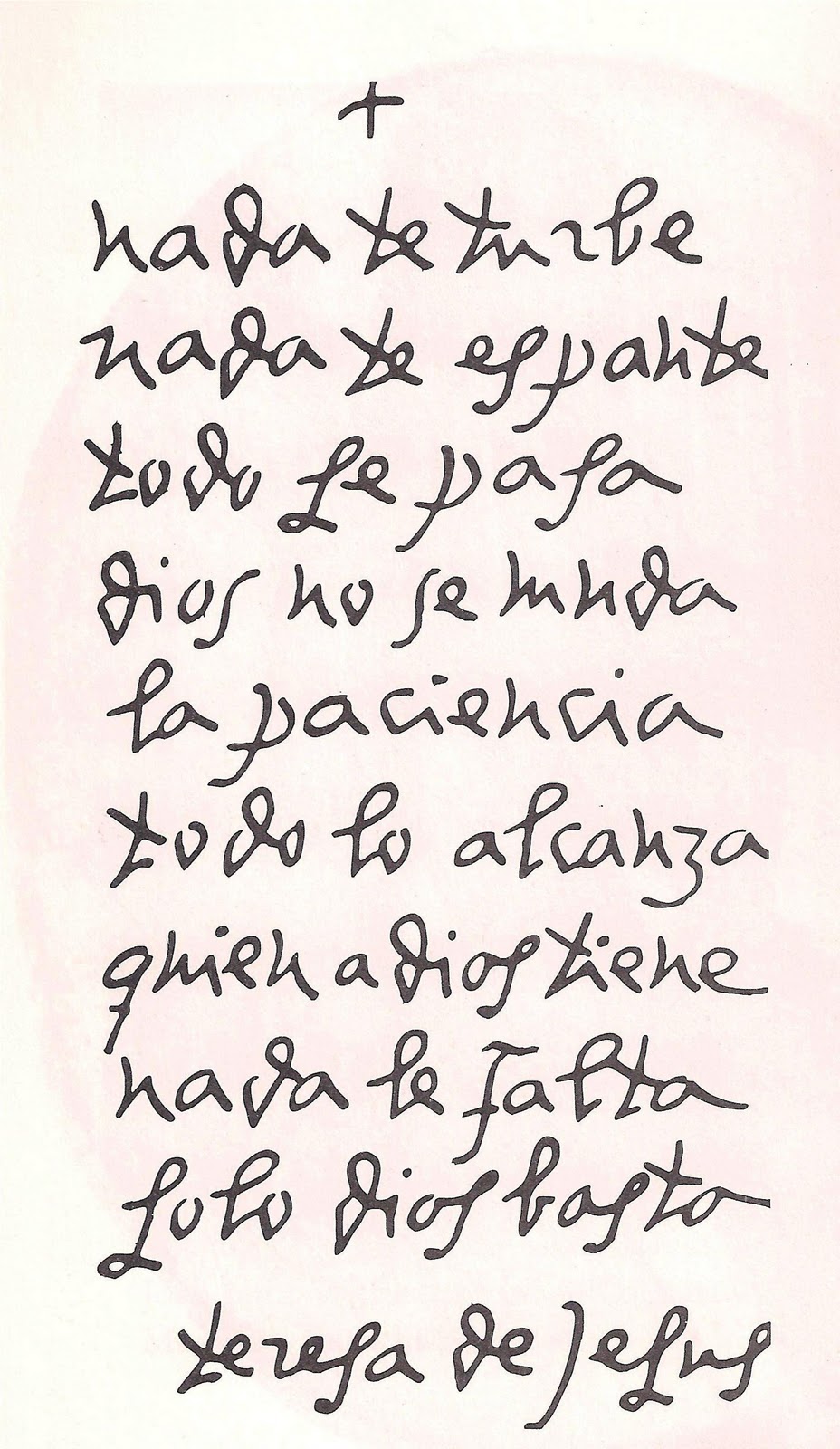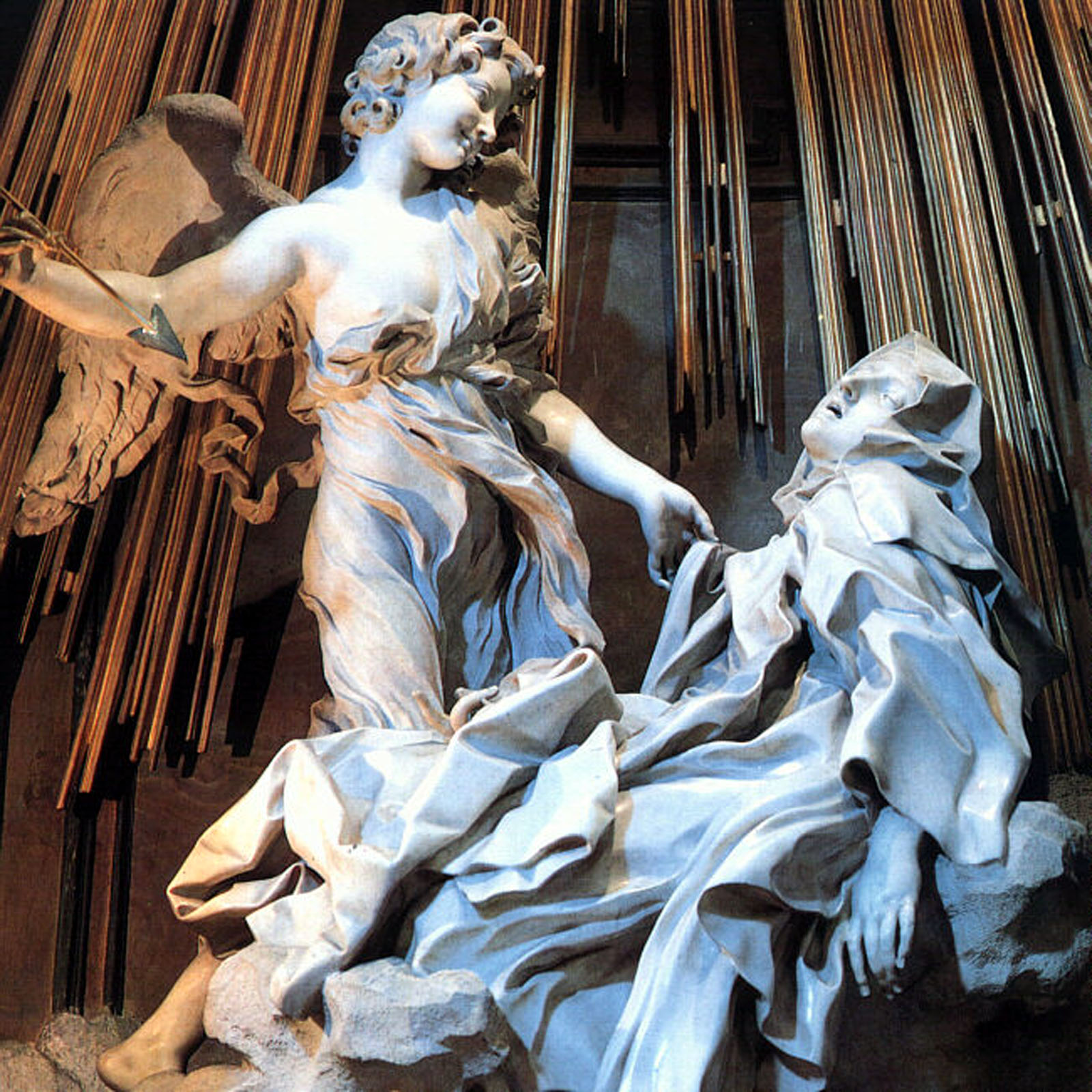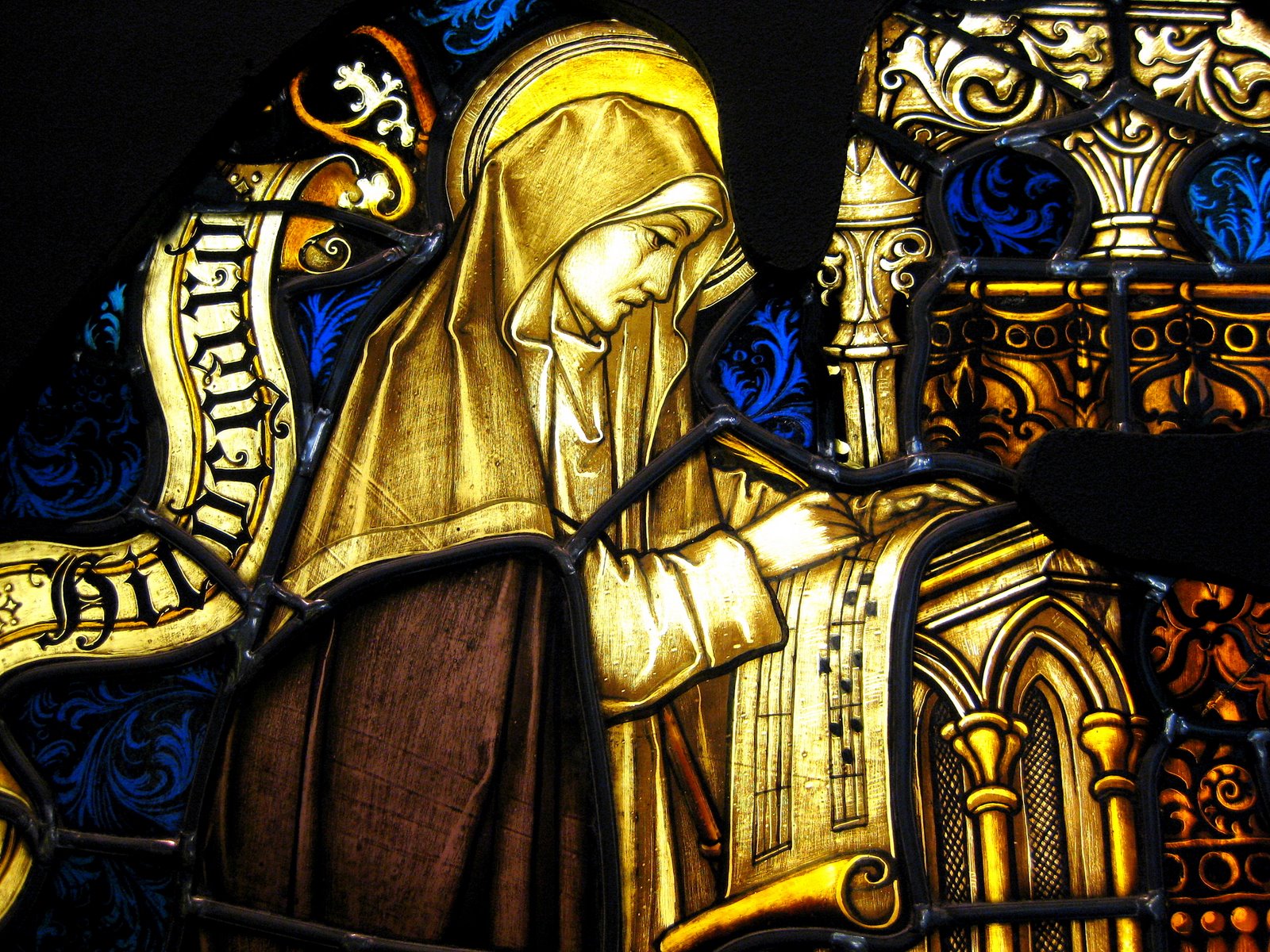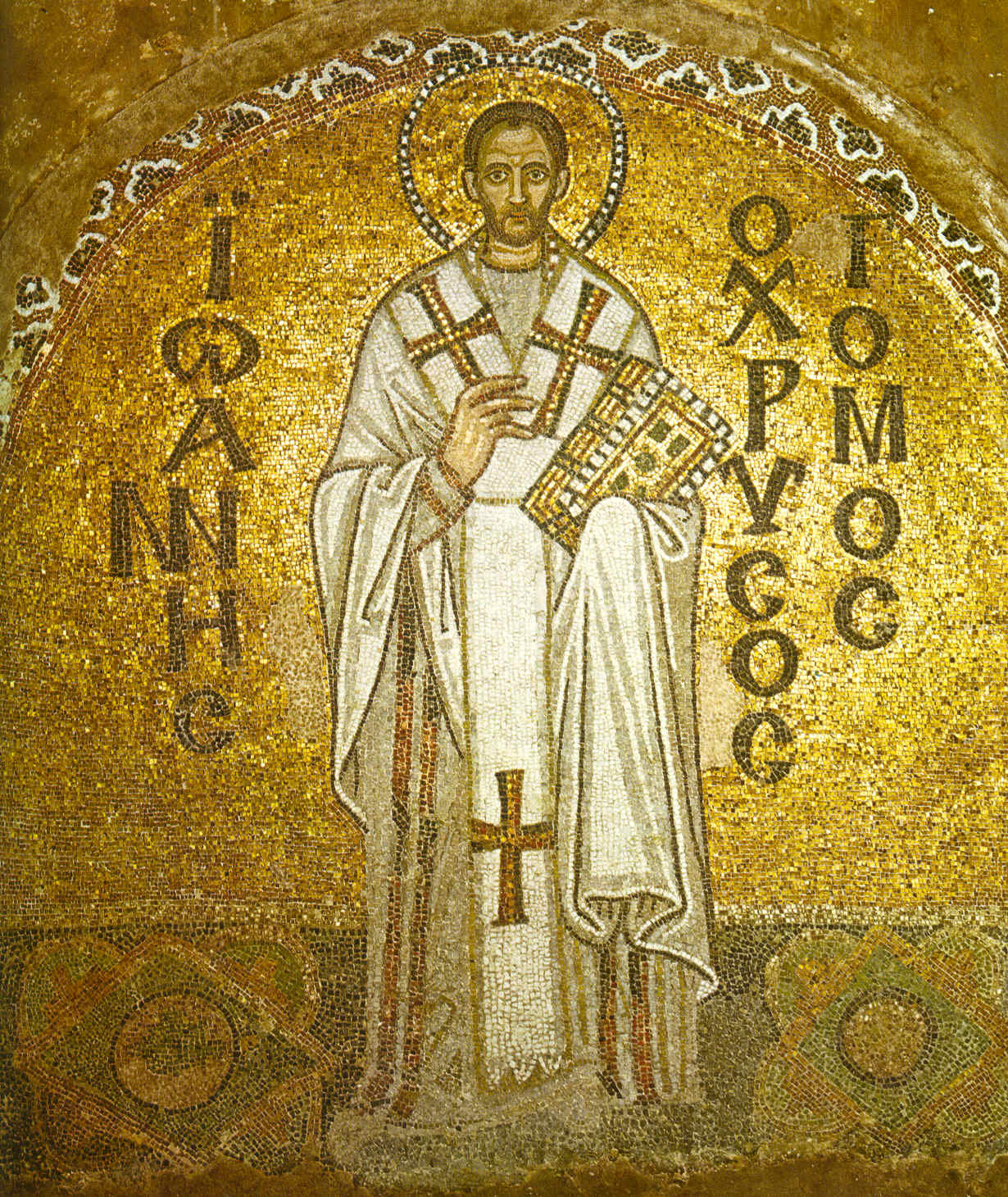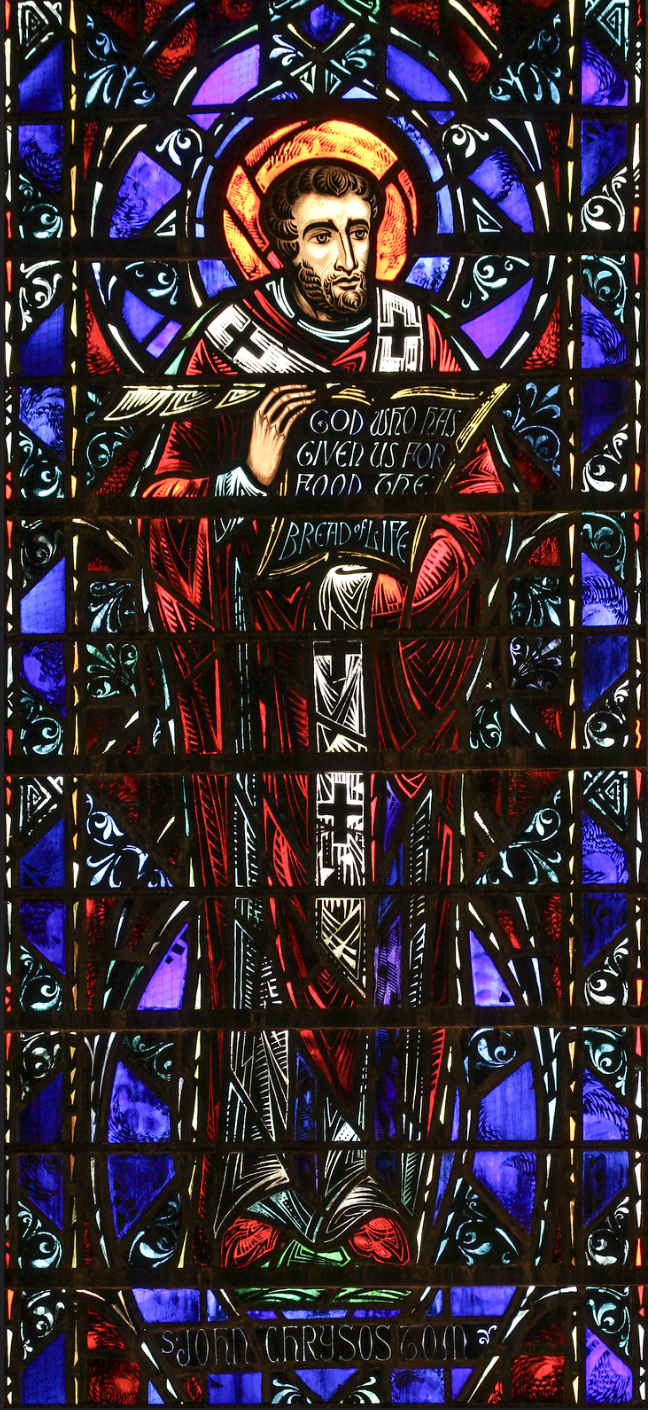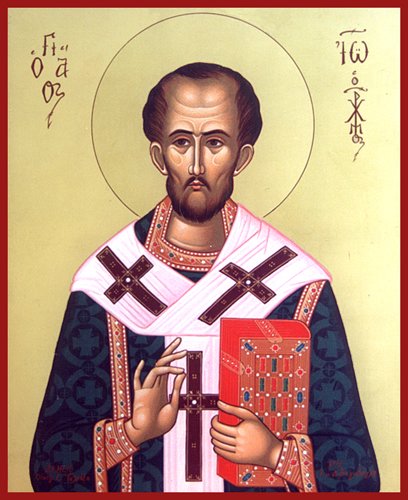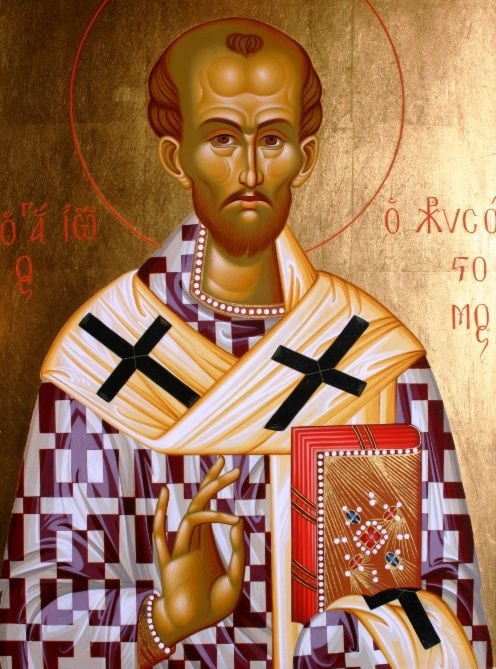Also known as the “Common Doctor/Doctor Communis”, which is high praise, meaning his opine is universal, something for everyone, relevant in every situation.
Probably, for me, the highlight, liturgically, of the year is Holy Thursday, after communion has been distributed and the priest is enwrapped in cope, incense is lit, the Blessed Sacrament is placed in the monstrance, the procession to the place of reservation begins and Pange Lingua, attributed to St Thomas Aquinas, and not just because I am his wonk, is sung beautifully and reverently, nearly as chant…
“Sing, my tongue, the Saviour’s glory,
of His Flesh, the mystery sing;
of the Blood, all price exceeding,
shed by our Immortal King…
Faith for all defects supplying,
Where the feeble senses fail…”
It is very moving for me. My mother always taught me to genuflect on both knees when the Blessed Sacrament is exposed. The altar is then stripped and ornamentation in the sanctuary is removed in anticipation of the events remembered the following day. There is such a peace, solemnity, silence, and profound meaning beyond words I look forward to each year.
I tried reading the Summa on my own, once, and only once. Emphasis on the word “tried” and “once”. I quickly gave up. Calculus is easier, more self-evident.
There are a great number of erudite tomes way over my head which are best introduced to the novice, literally, with a well seasoned, compassionate guide to whom the bewildered, overwhelmed student can revert with great frequency, great frequency, receiving tender mercies of experienced instruction and wisdom, presuming these qualities are present in the teacher. Thank God for merciful instructors. We would never graduate without their encouragement and support. I try to imitate that with my own students, who, too, are deeply grateful, usually, but there are some… 🙁 For those students, I have to pray even harder!!! 🙂
Don’t try the Summa on your own, boys and girls. Fair warning. Many of the original works of the Church Fathers fall into this category as well. You have been fairly warned! I have the intellectual scars from those “knowledge bombs”, a term one of my students recently introduced me to, to prove it! Wanna see? 🙂
St. Thomas Aquinas was born January 28, 1225, in Aquino, a town in southern Italy from which he takes his surname. In his masterwork, Summa Theologica, he represents the pinnacle of Scholasticism, the philosophical and theological school that reconciles faith with reason and the works of Aristotle with the scriptures.
At the time Thomas lived, the works of Aristotle were being rediscovered in the West and great Christian thinkers of the day spent a good deal of attention and effort trying to unify Divine revelation with human philosophy. In the East, intellectual life flourished. The West was still recovering from the inertia of the “Dark Ages”, where little intellectual innovation occurred. It is said St Thomas was the spark who prepared the the West for the Renaissance. Aristotle had been preserved in Arabic, and Islam was producing great Aristotelian thinkers. Western Christians needed to respond in kind.
The family of Thomas Aquinas was a noble one, his parents, the Count of Aquino and Countess of Teano, were related to Emperors Henry VI and Frederick II, as well as to the Kings of Aragon, Castile, and France. He was the youngest of eight children.
During his early education, Thomas exhibited great acumen in the medieval trivium of grammar, rhetoric, and logic. Described as “a witty child”, who “had received a good soul”, even as a child student, he posed the question to his instructors, “What is God?”
Because of his high birth, Thomas’ entry into the Dominican order in the early 1240s was very surprising, and especially disturbing to his family. They especially opposed entry into “mendicant”, or begging orders, who beg for their sustenance, thinking it far below their family status.
Thomas’ family employed various means to dissuade him from his vocation, including kidnapping him and imprisoning him for two years. Thomas spent his time tutoring his sisters, and communicating with other Dominicans. His resolve was strong. Family members became desperate to dissuade Thomas, who remained determined to join the Dominicans. At one point, two of his brothers resorted to the measure of hiring a prostitute to seduce him. Thomas drove her away wielding a fire iron. That night two angels appeared to him as he slept and strengthened his determination to remain celibate giving him a mystical belt of chastity. He never faced sexual temptation again. (????!!!! Really? Wow? :< I guess. Mixed feelings on that one…. 🙂 [I DO like my sin, unfortunately. 🙁 Give me strength, Lord! :] Concupiscence.
Upon his escape, which was arranged by his mother, Theodora, as a face saving measure, rather than all out surrender to a religious order, Thomas returned to the Dominicans and his studies. Since, “still waters run deep”, Thomas was a thoughtful, and hence, quiet student. His taciturn nature was deceiving. So much so, his classmates thought him dim-witted. Possessing hefty stature, his classmates nick-named him “The Dumb Ox!”
After a stint as a student in Paris, Thomas made his way to Cologne to teach, receiving ordination to the priesthood in 1250. Soon after this, he was assigned to teach at Paris, where he also worked toward his degree of Doctor of Theology, which he received in 1257, with his friend St. Bonaventure, after some intramural political difficulty.
The remainder of his life was spent in prayer, study, and writing his great Summa Theologica, a systematic attempt to present the findings of scholasticism. Although Thomas is sometimes perceived simply as an analytical and methodical writer, he was, especially in his later years, given to periods of mystical ecstasy. During one such experience, on December 6, 1273, he resigned from his writing project, indicating that he had perceived such wonders that his previous work seemed worthless. During the Feast of St. Nicolas in 1273, St. Thomas Aquinas had a mystical vision that made writing seem unimportant to him. At Mass, he heard a voice coming from a crucifix tell him, “Thou hast written well of Me, Thomas; what reward wilt thou have?” to which St. Thomas Aquinas replied, “None other than Thyself, Lord.”
When St. Thomas Aquinas’ confessor, Father Reginald of Piperno, urged him to keep writing, Aquinas replied, “I can do no more. Such secrets have been revealed to me that all I have written now appears to be of little value, as so much straw.” St. Thomas Aquinas never wrote again.
The Summa Theologica was left unfinished, proceeding only as far as the ninetieth question of the third part. St. Thomas Aquinas died a few months later, on March 7, 1274. Today, Thomist theology stands at the center of the Roman Catholic tradition.

-The Temptation of St Thomas Aquinas, by Diego Velazquez, 1631-2, oil on canvas, Orihuela Cathedral Museum, please click on the image for greater detail.
“Dear Jesus,
I know that every perfect gift,
and especially that of chastity,
depends on the power of Your providence.
Without You a mere creature can do nothing.
Therefore, I beg You to defend by Your grace
the chastity and purity of my body and soul.
And if I have ever sensed or imagined anything
that could stain my chastity and purity,
blot it out, Supreme Lord of my powers,
that I may advance with a pure heart in Your love and service,
offering myself on the most pure altar of Your divinity
all the days of my life. Amen.”
-St Thomas Aquinas
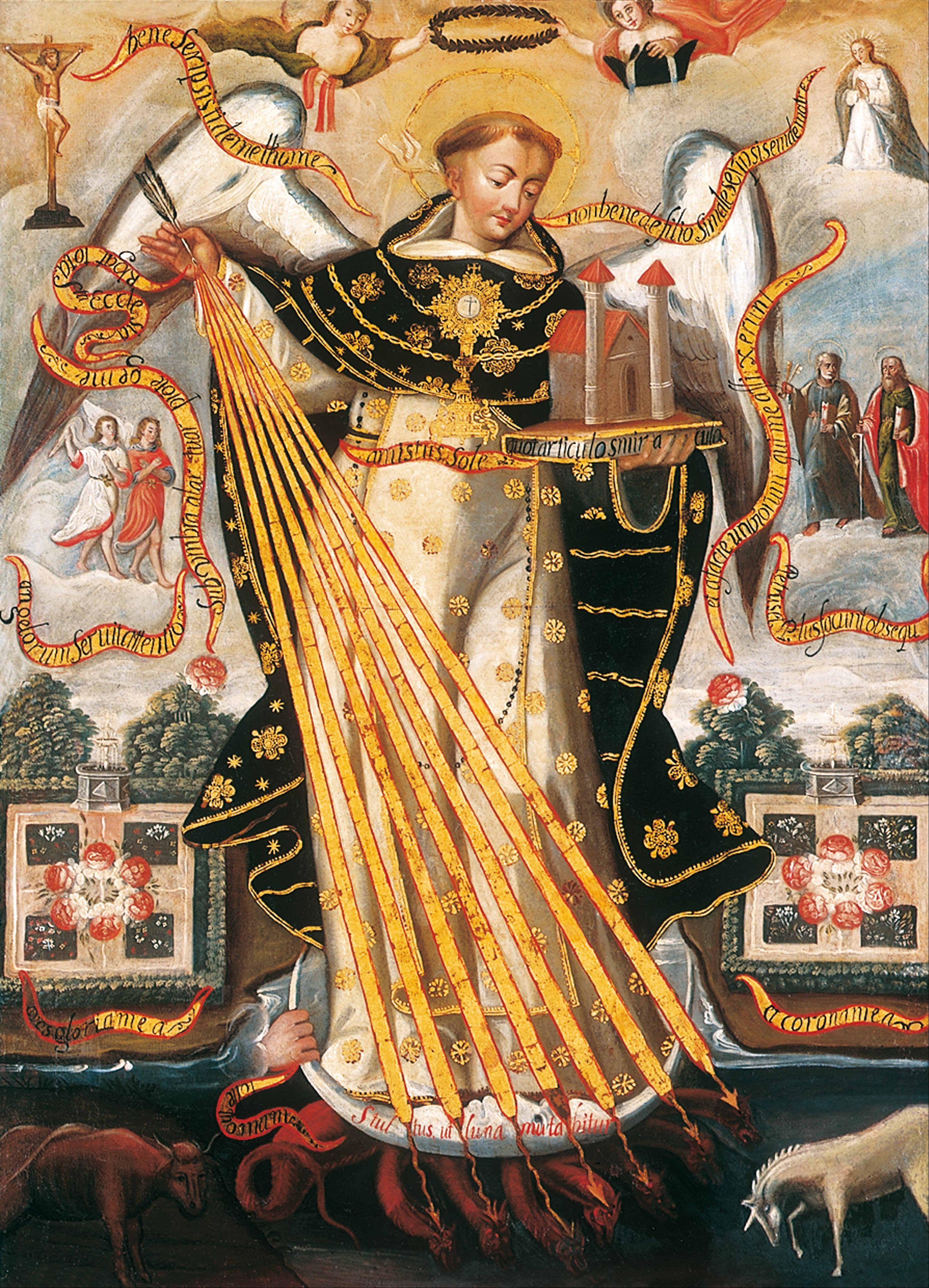
– artist anonymous, Cusco School, (1690 – 1695), “Saint Thomas Aquinas, Protector of the University of Cusco”, oil on canvas, H:1,610 mm (63.39 in), W:1,170 mm (46.06 in), Museo de Arte de Lima, Peru.
“Joy is the noblest human act.” -St Thomas Aquinas
“Charity, by which God and neighbor are loved, is the most perfect friendship.”
-St. Thomas Aquinas
“We can’t have full knowledge all at once. We must start by believing; then afterwards we may be led on to master the evidence for ourselves.”
–St. Thomas Aquinas
“Fasting cleanses the soul, raises the mind, subjects one’s flesh to the spirit, renders the heart contrite and humble, scatters the clouds of concupiscence, quenches the fire of lust, kindles the true light of chastity.”
-St. Thomas Aquinas
“Charity is the form, mover, mother and root of all the virtues.” – Saint Thomas Aquinas
“There is nothing on this earth more to be prized than true friendship.”
-St. Thomas Aquinas
“[The] ultimate end of man we call beatitude. For a man’s happiness or beatitude consists in the vision whereby he sees God in His essence. Of course, man is far below God in the perfection of his beatitude. For God has this beatitude by His very nature, whereas man attains beatitude by being admitted to a share in the divine light.”
—St. Thomas Aquinas
“To love God is something greater than to know Him.” -St. Thomas Aquinas
“It is requisite for the relaxation of the mind that we make use, from time to time, of playful deeds and jokes.”
–St. Thomas Aquinas
“Almighty and ever-living God, I approach the sacrament of your only-begotten Son, our Lord Jesus Christ. I come sick to the doctor of life, unclean to the fountain of mercy, blind to the radiance of eternal light, and poor and needy to the Lord of heaven and earth. Lord, in your great generosity, heal my sickness, wash away my defilement, enlighten my blindness, enrich my poverty, and clothe my nakedness. Amen.” -St Thomas Aquinas
“May I receive the bread of angels, the King of kings and Lord of lords, with humble reverence, with the purity and faith, the repentance and love, and the determined purpose that will help to bring me to salvation. May I receive the sacrament of the Lord’s Body and Blood, and its reality and power. Amen.” -St Thomas Aquinas
“The Eucharist is the Sacrament of Love; It signifies Love, It produces love. The Eucharist is the consummation of the whole spiritual life.”— St. Thomas Aquinas
Grant me grace, O Merciful God:
to desire ardently,
to examine prudently,
to acknowledge truthfully,
and to accomplish perfectly,
all that is pleasing to You for the praise and glory of Your name. Amen.
– Saint Thomas Aquinas
“As mariners are guided into port by the shining of a star, so Christians are guided to heaven by Mary.”
–Saint Thomas Aquinas
“Love takes up where knowledge leaves off.”
–St. Thomas Aquinas
“Man is not able not to desire to be happy,” (ST I-II, q. 5, a. 4, ad 2).
“We desire to be happy not by free choice but by natural instinct” (ST I, q. 19, a. 10)
“It is impossible that in this life, true happiness should be had” (ST I-II, q. 5, a. 3)
“As mariners are guided into port by the shining of a star, so Christians are guided to heaven by Mary.”
–Saint Thomas Aquinas
“O Merciful God,
grant that I may ever perfectly
do Your Will in all things.
Let it be my ambition to work
only for Your honour and glory.
Let me rejoice in nothing
but what leads to You,
nor grieve for anything
that leads away from You.”
– Saint Thomas Aquinas
“It must be observed, however, that if the faith were endangered, a subject ought to rebuke his prelate, even publicly” – St Thomas Aquinas, SUMMA THEOLOGICA II, II q.33
“Faith is a habit of the mind whereby eternal life is begun in us, making the intellect assent to what is non-apparent.”
–St. Thomas Aquinas
“Grace is nothing else but a certain beginning of glory within us.”
-St. Thomas Aquinas
“The greatest kindness one can render to any man consists in leading him from error to truth.”
-St. Thomas Aquinas
“Among the various indications that make the holiness of God known to men, the most convincing sign is the holiness of men, who are sanctified by the divine indwelling . . . In teaching us the words, ‘hallowed be Thy name,’ our Lord also bids us, when we pray, to ask that God may be glorified by our lives. The sense of the prayer is this: ‘Grant us so to live, that all men may glorify Thee through us.’ God is sanctified or hallowed in the minds of other men through us, to the extent that we are sanctified by Him. Hence when we say: ‘hallowed be Thy name,’ we pray, as Cyprian remarks, that God’s name may be hallowed in us. Following the lead of Christ, who says: ‘Be holy, because I am holy,’ we beg that we, who have been sanctified in Baptism, may persevere in the state in which we began. Furthermore we pray daily to be sanctified in order that we, who daily fall, may wash away our sins by a constant process of purification.”
—St. Thomas Aquinas, Shorter Summa
“Baptism is the door of the spiritual life and the gateway to the sacraments.”
-St. Thomas Aquinas
“The Eucharist is the Sacrament of Love; It signifies Love, It produces love. The Eucharist is the consummation of the whole spiritual life.”
–St. Thomas Aquinas
“Give me, O God, an ever-watchful heart which nothing can ever lure away from You; a noble heart, which no unworthy affection can draw downwards to the earth; an upright heart, which no evil can warp; an unconquerable heart, which no tribulation can crush; a free heart, which no perverted affection can claim for its own. Bestow on me, O God, understanding to know You, diligence to seek You, and wisdom to find You; a life which may please You, and a hope which may embrace You at the last.” -St Thomas Aquinas, OP
“It is nevertheless commendable at times that the object of a favor should remain in ignorance of it, both in order to avoid vainglory, as when Blessed Nicolas threw gold into a house secretly, wishing to avoid popularity: and because the kindness is all the greater through the benefactor wishing not to shame the person on whom he is conferring the favor.” – St. Thomas Aquinas
“Leaves without flowers: these are they which have words without works.” -St. Thomas Aquinas, from the book Sermon in a Sentence, Vol. 5.
“He who is not angry when there is just cause for anger is immoral. Why? Because anger looks to the good of justice. If you can live amid injustice without anger, you are immoral as well as unjust.” -St. Thomas Aquinas
“In this life no one can fulfill his longing, nor can any creature satisfy man’s desire. Only God satisfies, he infinitely exceeds all other pleasures. That is why man can rest in nothing but God.”
–St. Thomas Aquinas
“Friendship is the source of the greatest pleasures, and without friends even the most agreeable pursuits become tedious.”
–St. Thomas Aquinas
“Purity is necessary if the mind is to be applied to God, because the human mind is sullied when it is attached to inferior things; just as anything is rendered impure by being mixed with something baser, e. g. silver when mixed with lead. The mind ought to be withdrawn from inferior objects if it is to be united to the supreme object; and therefore the mind that lacks purity cannot be applied to God.” -St Thomas Aquinas, OP
“O most blessed and most sweet Virgin Mary full of mercy,
to thy compassion I recommend my soul and body, my thoughts, actions, life and death.
O my Lady, help and strengthen me against the snares of the devil;
obtain me true and perfect love with which to love thy most beloved Son and my Lord Jesus Christ with my whole heart, and after Him to love thee above all things.
My Queen and Mother, by thy most powerful intercession,
grant that I may persevere in this love until death
and after death be conducted by thee to the kingdom of the blessed.” – St Thomas Aquinas
“Grant O merciful God, that I may ardently desire, carefully examine, truly know and perfectly fulfil those things that are pleasing to You and to the praise and glory of Your holy name. Direct my life, O my God, and grant that I might know what you would have me to do and for me to fulfil it as is necessary and profitable to my soul. Grant to me, O Lord my God, that I may not be found wanting in prosperity or inadversity and that I may not be lifted up by one nor cast down by the other. May I find joy in nothing but what leads to You and sorrow in nothing but what leads away from You. May I seek to please no one or fear to displease anyone, save only You. Grant to me, O Lord God, a vigilant heart that no subtle speculation may ever lead me from You; a noble heart that no unworthy affection may draw me from You; an upright heart that no evil purpose may turn me from you. Give me a steadfast heart that no tribulation may shatter and a free heart that no violent affection may claim as its own. And finally, grant me O Lord my God, a mind to know you, diligence to seek you, wisdom to find you. Give me a way of life pleasing to You; perseverance to trust and await You in confidence that I shall embrace You at the last. Amen.”
-Saint Thomas Aquinas
Wonderful Theologian and Doctor of the Church, you learned more from the Crucifix than from books. Combining both sources, you left us the marvelous “Summa” of theology, broadcasting most glorious enlightenment to all. You always sought for true light and studied for God’s honor and glory. Help us all to study our religion as well as all other subjects needed for life, without ambition and pride in imitation of you. Amen.
PRAYER OF THANKS FOR GOD’S BLESSING
I praise, glorify, and bless you, my God, for the immeasurable blessings shown to me who am unworthy of them. I praise your compassion extended to me for so long a time, and your gentleness appearing in the guise of correction. I praise your tenderness calling out to me, your kindness welcoming me, and your mercy forgiving my sins. I praise your goodness given to me beyond what I deserve, and your forbearance that does not remember grievances. I praise your humility that consoles me, your patience that shelters me, your eternity that preserves me, and your truth that rewards me. What can I proclaim, my God, about your ineffable generosity? For you call the fugitive back. You welcome the one who returns. You sustain the faltering. You gladden the despondent. You prod the negligent. You arm the warrior. You crown the victor. You spurn not the repentant sinner. You do not remember his wrongdoing. You free him from many perils. You soften his heart for penitence. You frighten him with chastisement. You entice him with promises. You castigate him with rods. You guard him with ministering angels. For you supply us with all temporal goods. You reserve for us an eternal good. You inspire us with the beauty of creation. You appeal to us with the mercy of redemption. You promise us blessings in reward. For all these I am incapable of sufficient praise. I thank your majesty for the abundance of your immense goodness. May you always increase your grace in me, preserve that increase, and reward what you have preserved. Amen.
-Saint Thomas Aquinas
St Thomas Aquinas, OP, reminds us that, “Three things are necessary for the salvation of man: to know what he ought to believe, to know what he ought to desire, and to know what he ought to do.” Everyone is called to work toward their salvation (Phil 2:12), which is ultimately union with God. Those who take this call seriously must embark upon a journey inward to the deepest recesses of their soul. In the adventure and wonder of that journey, we work out the details of our union with our Beloved. We cling to what we need to believe, remain firm in what we truly desire, and are guided by what we know we have to do.
Prayer
Father of wisdom, You inspired Saint Thomas Aquinas with an ardent desire for holiness and study of sacred doctrine. Help us, we pray, to understand what he taught, and to imitate what he lived. Amen.
Love,
Matthew

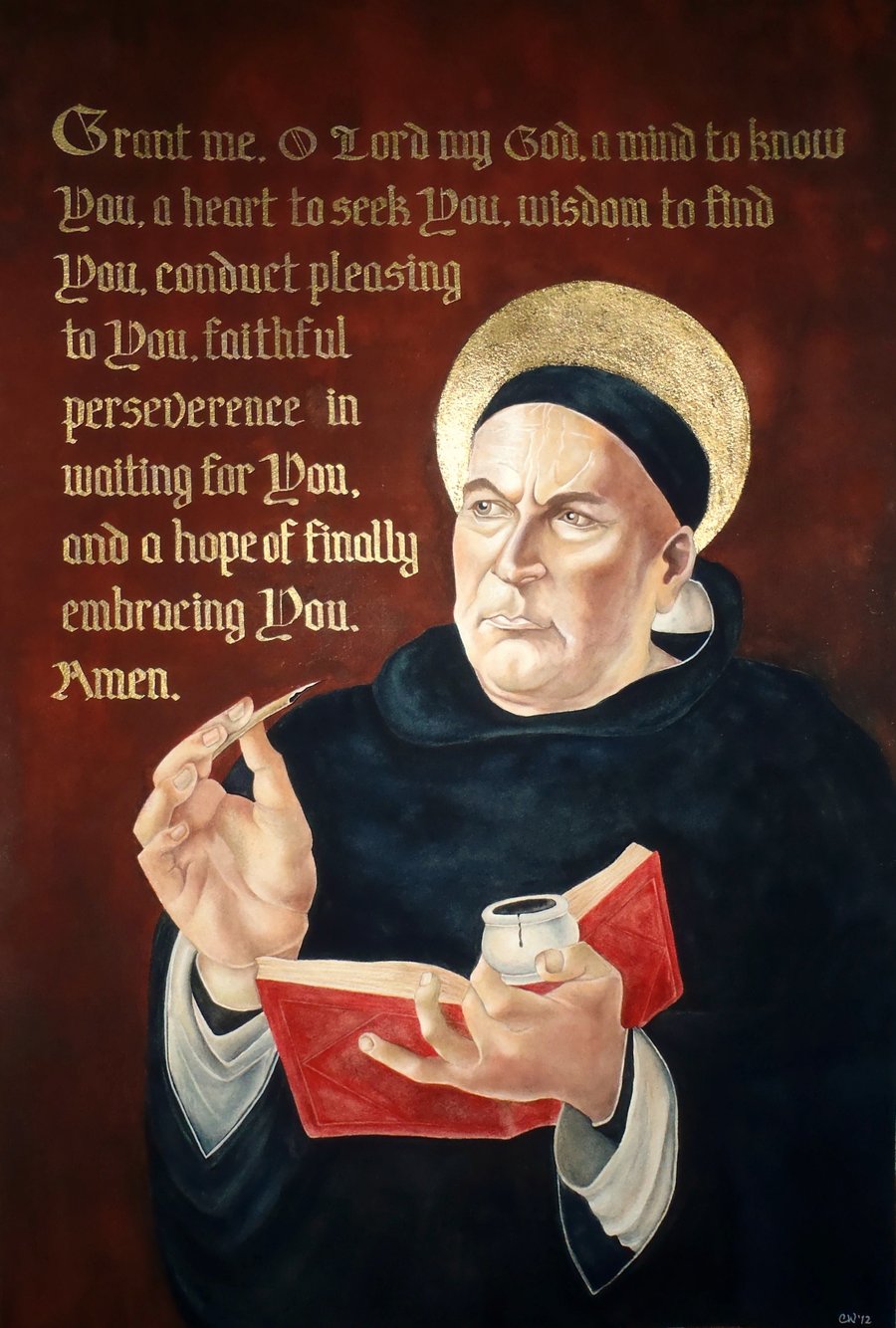

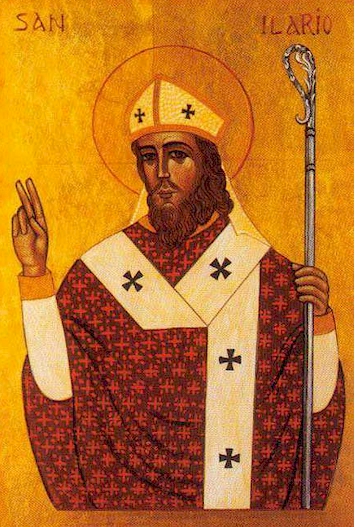
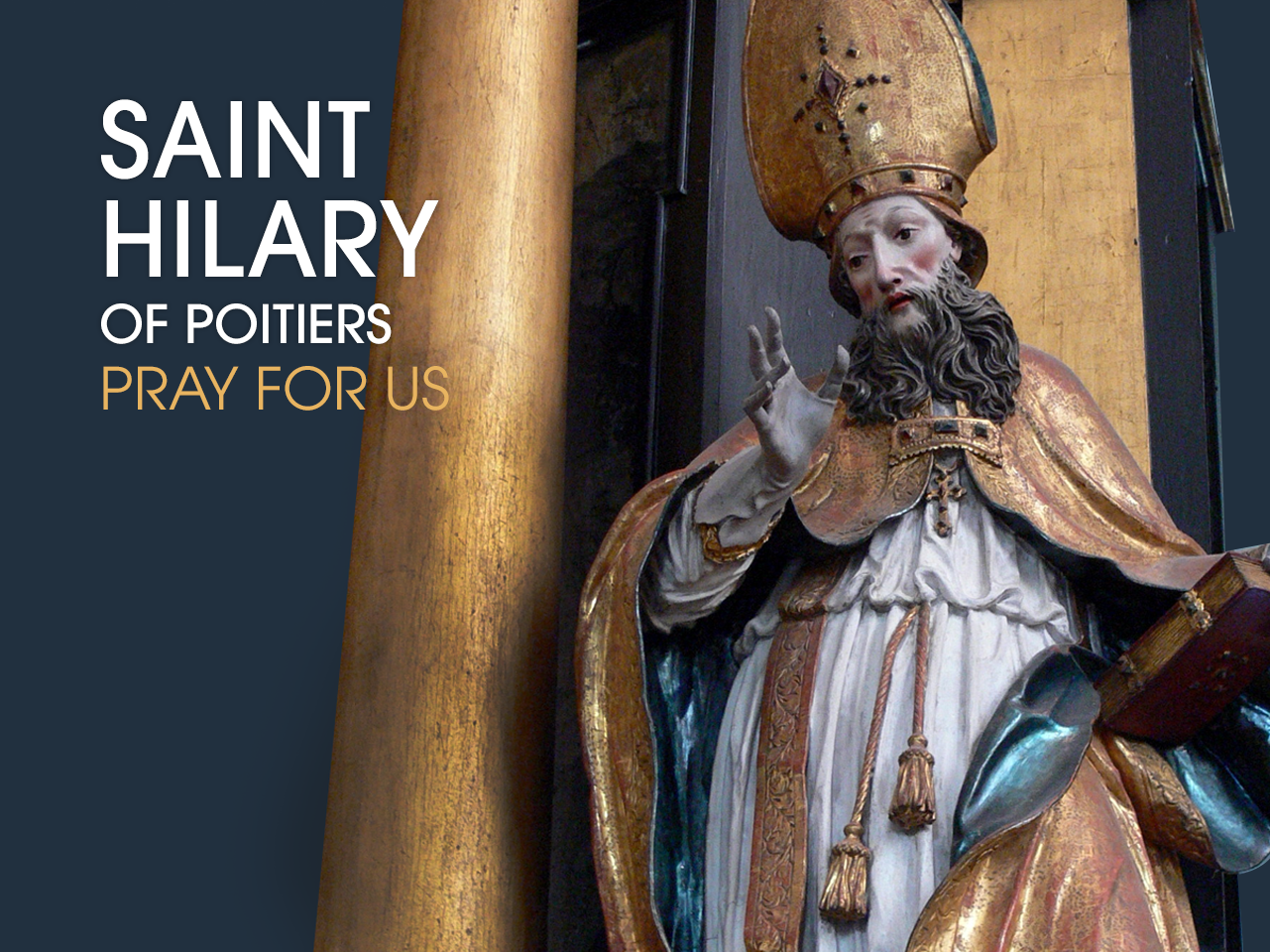
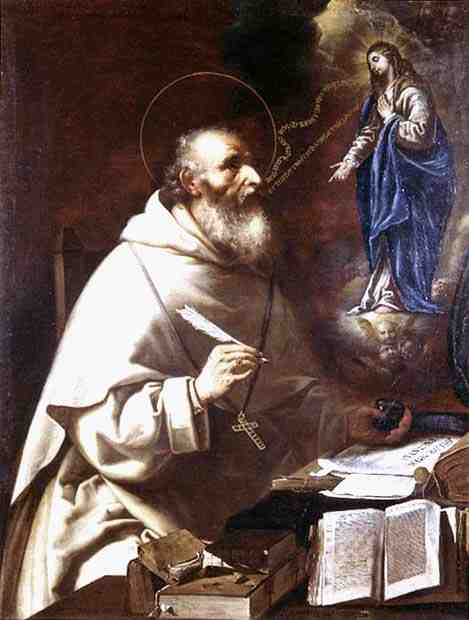


![cropped-st_-albert[1]](https://soul-candy.info/wp-content/uploads/2012/12/cropped-st_-albert1.jpg)
